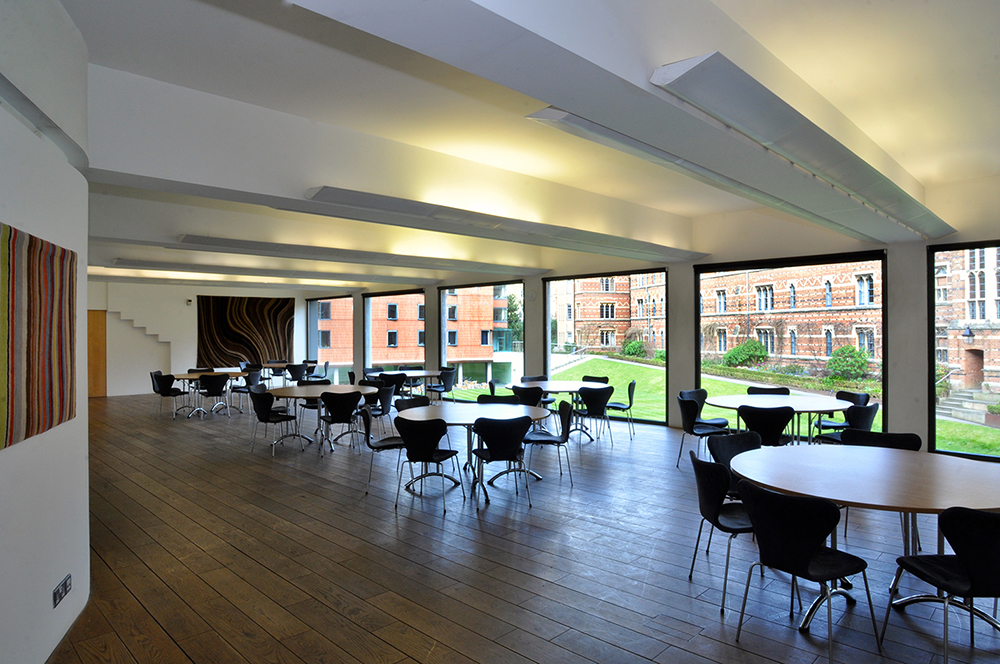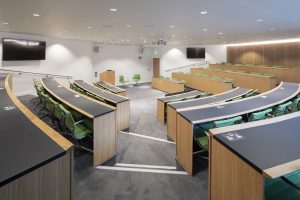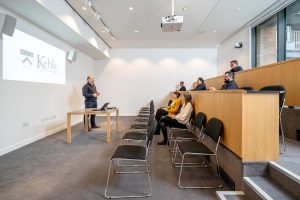Breakout sessions are an important part of any conference agenda as they break up the day, boost audience engagement and allow planners to facilitate further discussions around key themes. But what are the other benefits of utilising breakouts and what formats, and tools can be employed to support successful events?
The benefits of Breakout Sessions
Breakouts can add a personal and memorable touch to your event. The objective is to get delegates together in a more intimate environment where they can discuss and reflect on the content presented during the day. Incorporating breakout sessions into your events can:
- Encourage active participation – Breakouts add a level of interactivity to the event that breaks up more passive moments and results in higher levels of engagement. Not all delegates will appreciate solely listening to speakers and others will want to discuss topics in more detail. Smaller sessions allow delegates to speak freely and provide feedback, giving them an opportunity to dive into content that interests them.
- Promote deeper understanding and retention – The amount of information retained varies between delegates and formats used. When content is shared in a one-way format, planners are reliant on the attention spans of attendees and their level of understanding. Breakout sessions allow facilitators to engage delegates in active discussions and practical exercises which will increase the likelihood that content will be digested, retained and understood.
- Allow delegates to collaborate with like-minded individuals – Breakouts can be targeted to specific individuals based on their role, level of experience, seniority, department and interests. As such, these sessions can facilitate networking, team building and close collaboration with fellow delegates in organic ways.
- Facilitate skill sharing – Participatory sessions can allow attendees to share skills and encourage the development of new skills. Breakouts help attendees to discuss ideas before putting them into practice in a less formal environment. Facilitators can group together attendees with varying levels of experience so that delegates can learn from each other.
- Maintain energy levels – Breakouts are purposefully short to maintain energy levels and boost attention. Smaller sessions can not only help break up otherwise long days, they encourage heightened focus through engaging delegates with subject matter a variety of tasks, encourage two-way communication and drive engagement through participatory activities and tasks.
- Better attendee rates – Smaller sessions can provide more value to delegates, ensuring that they leave the day feeling fulfilled, motivated and looking forward your next conference. Well run breakouts can make events more enjoyable and memorable for the right reasons.
The best formats for breakouts
Breakouts can be valuable if they’re focused and purposeful. However, the subject matter needs to be carefully considered so that it’s relevant to delegates and each session needs a clear objective to drive productivity. When planning sessions, a good starting point is to follow the event theme, along with any objectives or outcomes required for the day.
Typically shorter than other parts of the agenda, breakouts should last between 30-45 minutes with groups of no more than 5-10 participants to maintain interactivity and engagement levels. Sessions can occur simultaneously with targeted content clusters to maximise time. They can also include topics based on attendee feedback from pre-event surveys, conference apps or registrations forms.
Each session should include an agenda, clear objectives and outcomes to drive purpose and value. Breakouts can include a variety of activities to drive productivity and keep them fast paced such as Q&As, workshops, roundtable discussions, role play, networking, games and tasks.
The best tools for effective breakouts
Planners can use a range of tools to create engaging and memorable events that support both in-person and virtual attendance. Event hashtags on social platforms can allow attendees to interact with each other, ask questions, share feedback or reach out to speakers and organisers.
Event gamification tools can be used to drive incentives or reward behaviour such as attendees completing required breakouts. There are also several conference apps and event platforms such as Eventify or Slido which solidify your theme, showcase agendas and speaker bios, and encourage live polling to drive attendee participation.
Planners can use these tools to measure engagement and gain insightful feedback in real time to gauge what resonates with audiences. Post conference, event data can be evaluated to form meaningful debriefs to prepare for future events.
Finding the best venue for your event
To deliver a successful conference event, finding a suitable venue is key. Keble College is the perfect setting, offering diverse facilities to support larger presentations and a range of smaller spaces ideal for breakout or workshop sessions. Boasting an enviable location within the heart of Oxford, it offers a variety of conference rooms which can be split into smaller areas or used as standalone settings. All spaces are wifi enabled to allow hybrid events and all can be configured to deliver the best outcomes. For events spanning a few days, Keble also offers plenty of ensuite bed and breakfast accommodation on-site.
Keble’s historical Sloane Robinson site and modern H B Allen Centre offer larger meeting spaces such as the Lecture Theatre and O’Reilly Theatre which can accommodate between 120 and 250 delegates respectively. Perfect for keynote speakers, these rooms come with AV and WIFI accessibility, individual writing tablets and full audio-visual facilities supporting live streaming and hybrid conferences.
The College also boasts a variety of smaller meeting spaces – ideal for breakout sessions and workshops. Its Arco Rooms can be tailored to several configurations including a large, 200sqm area for exhibitions and receptions, or three smaller rooms. Delegates can also utilise Keble’s comfortable, character-filled Gibbs Room, Seminar Rooms or the H B Allen Centre’s Glen Callater Room, featuring built in projection, mobile TV connectivity and sound facilities.
Keble’s dedicated Conference and Events team have years of conference experience with expertise in fulfilling meaningful breakout sessions. If you’re looking for a venue that’s flexible enough to meet all of your conference requirements, Keble College offers a unique setting and facilities to create lasting memories for your delegates. Speak to a member of our expert team or click here for more information.



